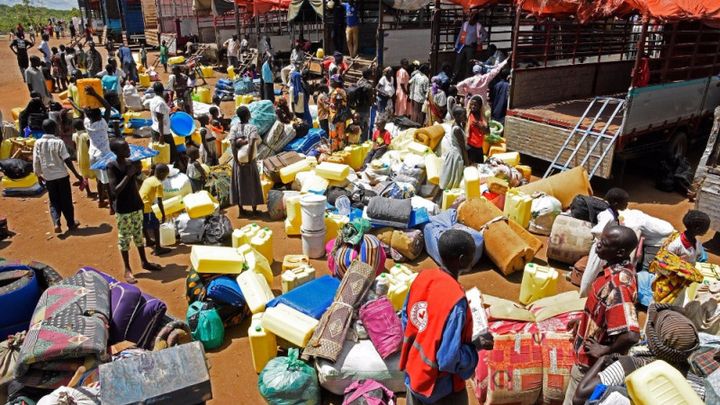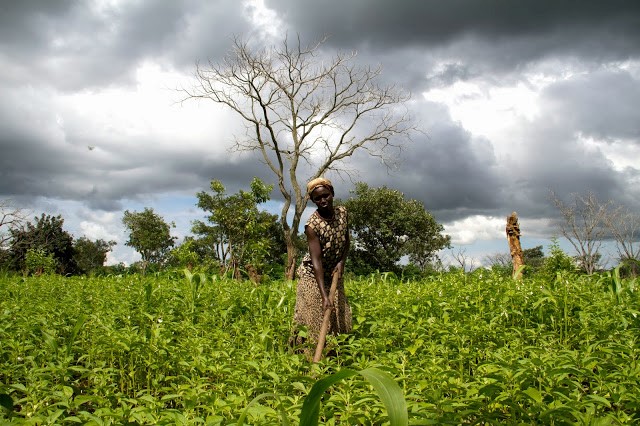
You and Uganda
Donation protected
This December through January, our team will be traveling to 9 cities in Uganda, undertaking a research mission to study cold chain operations. This mission is being carried out in an effort to make a truly lasting impact on the quality of life of the people living there, not just for the time we are there, but for the decades to come.
For those of you who may not know exactly what cold chain operations are, they are fairly easy to explain. Imagine, for example, you are a farmer in Uganda who wants to get your crop to the market several towns over. Unfortunately, whichever crop you’re growing spoils rather quickly in the hot African sun, so you need to find a way to keep your crop fresh while it is transitioning from growing in your field to the stall at the market. This could mean simply utilizing the shade from some trees near your farm during storage all the way up to modern refrigerated trucks for transportation, and everything in-between. Essentially cold chain systems enable people to keep food fresh for longer, which helps feed more in-need people with higher quality and safer food.
These systems also have long-term benefits wherever they are efficiently implemented, one of which is farmers being able to grow different crops, which leads to the local populace being able to eat a more balanced diet. Think of eating only potatoes from the same tired market stand for years on end, because that is the only produce that could be grown and sold without cold chain systems. Now imagine that same market with several other stands bursting with the peppers, fruit, vegetables, and other fresh produce that farmers are now able to grow and transport to the market, all by utilizing previously untapped cold chain potential. That is just one example of what cold chain operations can do for a region, but they aren’t limited to just food; they apply to anything that is temperature-sensitive, such as medicines, vaccines, etc. These systems are what we are looking to help establish in the cities and towns we are headed to, so that the people there can access fresh and varied food, medicine, and many other goods we take for granted.
While we are on the ground in-country we’re going to be mapping out geographical data (GIS mapping), gathering information from interviews and surveys while also just getting out to talk to the people working the fields. We will also be taking pictures and video of existing cold chain systems and the areas where they can be improved or even established outright. All of these activities are going to give us a wealth of information that we can then use to create a condensed report for our research partners, which will in-turn directly affect future actions for the region. This will mean that improvements to the area coming from both domestic and international aid groups will be much more accurate and relevant, so the help the people in the region will get will be much more effective at getting them the nutritious foods from a more balanced diet, the increased profit for the farmers from selling different crops, and an overall boost in their family’s health outcomes.

Our Team:
Joel Taylor
A graduate student at Texas A&M University, studying International Affairs and Food Security in Conflict will act as lead researcher, conducting and compiling interview and site visit data for the production of real time, interactive GIS mapping.
Brandon Sissom
A Chemical Engineering major, will be a critical researcher as well, helping to conduct interviews, compile data, and produce the final report of empirical evidence. Brandon brings a scientific approach to the methodology, shaping the research perspective for applicable and effective use.
Andrew Giles
A distinguished photography instructor in Fort Worth, TX will supplement the team by professionally photographing and compiling a short film of the project. These photos will be used by experts as a benchmark for the existing cold chain infrastructure and operations in the locations we visit, which will act as tools for recommendations and future cold chain actions. The short film will be used for the same purposes, while also providing our donors, partners, and interested parties with the visual story of our work, the Ugandan cold chain, and the future of this project.

Our stated $10,000 goal is what we need to make this mission possible. 100% of the funds we raise will go directly to paying for transportation to Uganda, research materials, and operational costs during our stay. We have secured support from several key partners, but without our stated goal being reached we will not be able to add our hands to the process of change and help the Ugandan people establish access to these varied diets and medicines which are, quite honestly, lifesaving and changing. Cold chain operations are one of the most underdeveloped systems in our world today, and we want you to help us make the next step towards connecting the pieces in the Ugandan food supply to bring them closer to what we enjoy every single day.

Photos: Isaac Kasamani, APN
For those of you who may not know exactly what cold chain operations are, they are fairly easy to explain. Imagine, for example, you are a farmer in Uganda who wants to get your crop to the market several towns over. Unfortunately, whichever crop you’re growing spoils rather quickly in the hot African sun, so you need to find a way to keep your crop fresh while it is transitioning from growing in your field to the stall at the market. This could mean simply utilizing the shade from some trees near your farm during storage all the way up to modern refrigerated trucks for transportation, and everything in-between. Essentially cold chain systems enable people to keep food fresh for longer, which helps feed more in-need people with higher quality and safer food.
These systems also have long-term benefits wherever they are efficiently implemented, one of which is farmers being able to grow different crops, which leads to the local populace being able to eat a more balanced diet. Think of eating only potatoes from the same tired market stand for years on end, because that is the only produce that could be grown and sold without cold chain systems. Now imagine that same market with several other stands bursting with the peppers, fruit, vegetables, and other fresh produce that farmers are now able to grow and transport to the market, all by utilizing previously untapped cold chain potential. That is just one example of what cold chain operations can do for a region, but they aren’t limited to just food; they apply to anything that is temperature-sensitive, such as medicines, vaccines, etc. These systems are what we are looking to help establish in the cities and towns we are headed to, so that the people there can access fresh and varied food, medicine, and many other goods we take for granted.
While we are on the ground in-country we’re going to be mapping out geographical data (GIS mapping), gathering information from interviews and surveys while also just getting out to talk to the people working the fields. We will also be taking pictures and video of existing cold chain systems and the areas where they can be improved or even established outright. All of these activities are going to give us a wealth of information that we can then use to create a condensed report for our research partners, which will in-turn directly affect future actions for the region. This will mean that improvements to the area coming from both domestic and international aid groups will be much more accurate and relevant, so the help the people in the region will get will be much more effective at getting them the nutritious foods from a more balanced diet, the increased profit for the farmers from selling different crops, and an overall boost in their family’s health outcomes.

Our Team:
Joel Taylor
A graduate student at Texas A&M University, studying International Affairs and Food Security in Conflict will act as lead researcher, conducting and compiling interview and site visit data for the production of real time, interactive GIS mapping.
Brandon Sissom
A Chemical Engineering major, will be a critical researcher as well, helping to conduct interviews, compile data, and produce the final report of empirical evidence. Brandon brings a scientific approach to the methodology, shaping the research perspective for applicable and effective use.
Andrew Giles
A distinguished photography instructor in Fort Worth, TX will supplement the team by professionally photographing and compiling a short film of the project. These photos will be used by experts as a benchmark for the existing cold chain infrastructure and operations in the locations we visit, which will act as tools for recommendations and future cold chain actions. The short film will be used for the same purposes, while also providing our donors, partners, and interested parties with the visual story of our work, the Ugandan cold chain, and the future of this project.

Our stated $10,000 goal is what we need to make this mission possible. 100% of the funds we raise will go directly to paying for transportation to Uganda, research materials, and operational costs during our stay. We have secured support from several key partners, but without our stated goal being reached we will not be able to add our hands to the process of change and help the Ugandan people establish access to these varied diets and medicines which are, quite honestly, lifesaving and changing. Cold chain operations are one of the most underdeveloped systems in our world today, and we want you to help us make the next step towards connecting the pieces in the Ugandan food supply to bring them closer to what we enjoy every single day.

Photos: Isaac Kasamani, APN
Organizer
Joel Taylor
Organizer
College Station, TX


